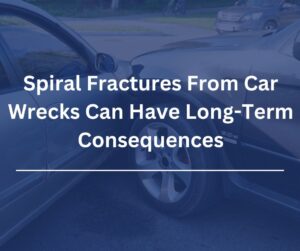 Steps to Take After Being Involved in a Car Crash in New York
Steps to Take After Being Involved in a Car Crash in New York
Dealing with an insurance adjuster after a car accident can feel like stepping into unfamiliar territory. You expect fair treatment, but the adjuster works for the insurance company—not for you. Their goal is to minimize payouts and protect their employer’s bottom line. So, how can you ensure you receive the compensation you deserve?
Understanding the tactics adjusters use and how to respond strategically can make all the difference. If you’re facing a difficult claims process, Greenspan & Greenspan P.C. is here to guide you through every step. We will fight to protect your rights and get you the settlement you need.
What Does an Insurance Adjuster Do?
Insurance adjusters, also known as claims adjusters, investigate claims, assess damages, and determine how much compensation, if any, the insurance company they work for should pay you. Common tasks include:
- Reviewing accident reports, medical records, and repair estimates;
- Speaking with witnesses and consulting experts;
- Evaluating liability and determining fault; and
- Offering settlement amounts.
While their role may seem neutral, they represent the insurance company’s financial interests, so their settlement offers are often lower than claimants deserve.
Understanding an adjuster’s role and responsibilities can help you confidently navigate conversations and avoid common pitfalls.
Car Accident Insurance Claim Tips: Dealing with Insurance Adjusters After a Car Accident
Insurance adjusters are trained to find ways to minimize payouts. Often, they use your own statements to weaken your claim. Knowing what to say—and what not to say—can be the difference between fair compensation and a denied claim. Here are some solid car accident insurance claim tips that will help you protect yourself:
- Be polite but cautious. A cooperative tone helps, but remember that the adjuster is not on your side.
- Take notes on every conversation. Keeping a record ensures an adjuster does not misrepresent your discussions.
- Follow up in writing. Verbal promises mean little without documentation.
- Stick to the facts. Provide only necessary information, such as the accident’s date, time, and location.
- Request everything in writing. Insist on written communication to create a record of all discussions and settlement offers.
- Consult an attorney. Before accepting any settlement, seek legal advice to ensure you receive a fair amount.
- Document everything. Keep records of medical visits, repair costs, lost wages, and conversations with the insurer.
These tips can help you avoid being taken advantage of by the insurance company. In addition, there are several things we recommend you avoid doing, including:
- Speculating about injuries. Saying you feel “fine” can be used to argue against later pain claims.
- Discussing previous medical conditions. Adjusters might try to blame injuries on pre-existing conditions.
- Agreeing to a quick settlement. Rushing into an agreement can leave you without funds for future medical bills.
- Admitting fault. Adjusters can use even simple apologies against you.
- Accepting the first offer. Initial settlements are often lower than what you’re entitled to.
- Signing anything without review. You could be waiving rights to future compensation.
- Downplaying your injuries. Symptoms can worsen over time, and an early settlement may not cover future medical expenses.
Insurance negotiations can be complex, and small mistakes can lead to significant losses. Being informed and cautious strengthens your position and improves your chances of securing full compensation. If you’re overwhelmed, consulting an attorney can help protect your rights.
How Do Adjusters Minimize Payouts?
Insurance companies have various tactics to limit payouts. Common strategies include:
- Disputing liability—adjusters may argue that you were partially or fully at fault;
- Downplaying injuries—adjusters may claim your injuries are minor or unrelated to the accident;
- Delaying claims—slow processing can pressure you into accepting a lower settlement;
- Offering lowball settlements—adjusters hope you’ll accept less than what your claim is worth; and
- Requesting excessive documentation—adjusters may continuously ask for additional records to prolong the process.
To counter these tactics, gather solid evidence, seek medical documentation, and consider hiring a lawyer to negotiate on your behalf. Doing so will make dealing with insurance adjusters after a car accident infinitely easier.
What Steps Should I Take Before Speaking to an Insurance Adjuster?
Preparation is key when dealing with an insurance company. Before engaging with an adjuster:
- Review your insurance policy,
- Obtain a copy of the accident report,
- Get medical evaluations,
- Calculate your losses, and
- Consult an attorney.
Being prepared helps you maintain control of the conversation and prevents the insurance company from exploiting gaps in your claim. Every statement you make can impact your case, so it’s crucial to approach discussions strategically. Seeking professional guidance can strengthen your position and improve your chances of obtaining fair compensation.
What Should I Do If an Adjuster Denies My Claim?
Insurance companies often deny claims in hopes that claimants will give up. If an adjuster denies your claim:
- Request a written explanation so you understand the reasons for the denial;
- Gather additional evidence like medical records, witness statements, and photos to strengthen your appeal;
- File an appeal through the insurance company’s internal appeal process; and
- Seek legal representation from a skilled lawyer who can challenge unfair denials and push for your deserved compensation.
Adjusters base many claim denials on technicalities or insufficient documentation rather than a lack of merit. Taking swift action and seeking legal advice can help you overcome these hurdles. An experienced attorney can navigate the appeals process, negotiate with insurers, and fight to ensure you receive fair compensation for your damages.
When Should I Contact a Lawyer for Help?
If the insurance company is delaying, denying, or undervaluing your claim, it’s time to seek legal representation from an experienced and knowledgeable team. Greenspan & Greenspan has advocated for New York accident victims for over 30 years. We handle all communications with insurers, fight for the compensation you deserve, and work on a no-recovery, no-fee basis—so you pay nothing unless we recover compensation on your behalf.
From securing reimbursement for medical bills to negotiating higher settlements, our team ensures you’re not taken advantage of. Contact us today for a free case review and let us fight for you.







